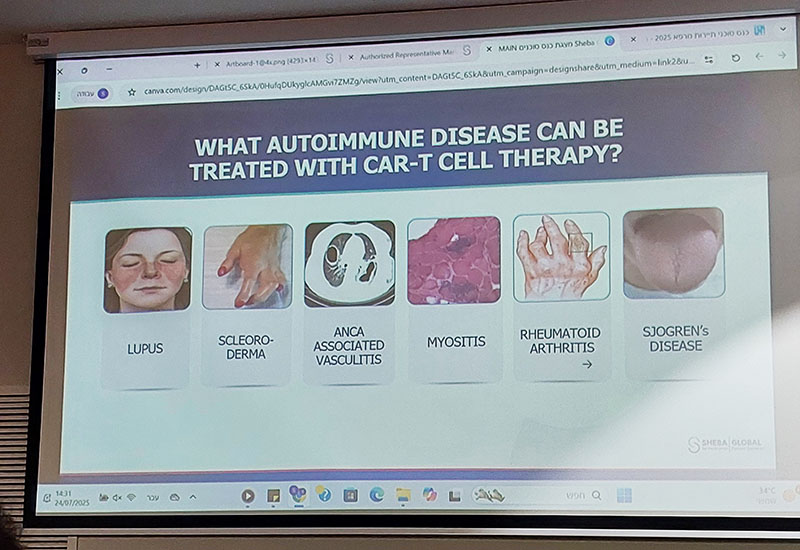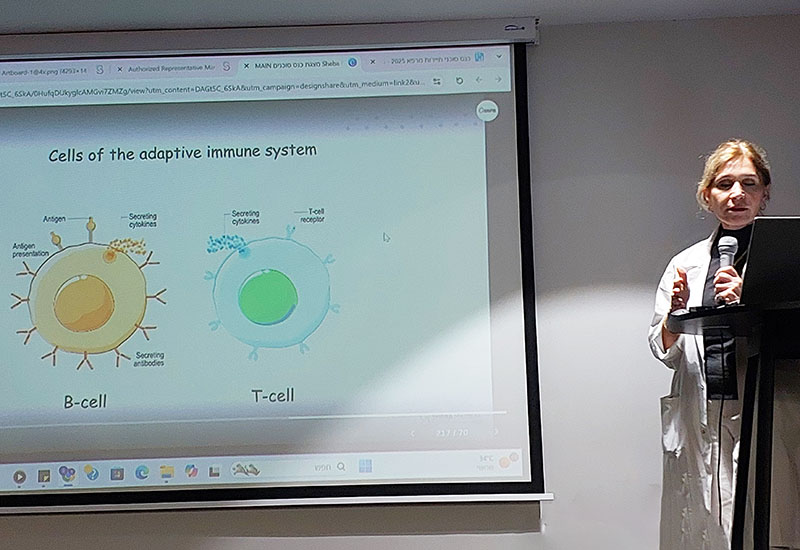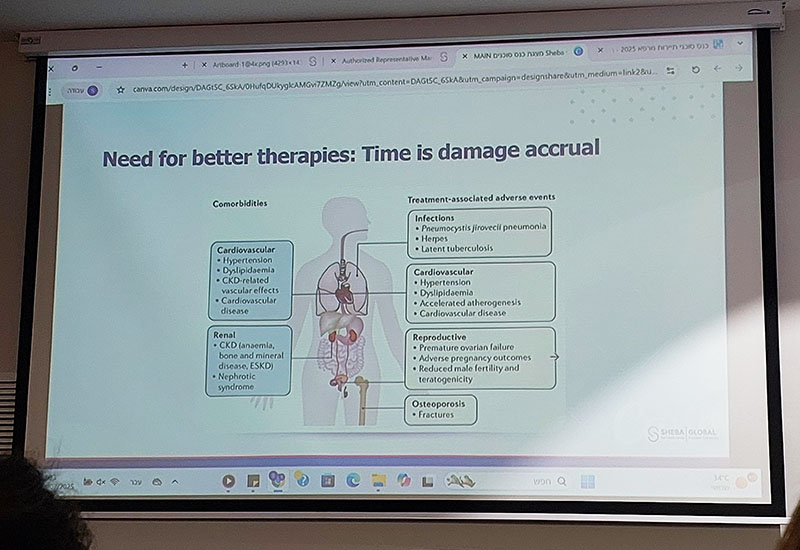What Is Systemic Sclerosis (Scleroderma)?
Systemic sclerosis — often called scleroderma — is a rare, chronic autoimmune disorder in which the body’s immune system triggers excessive collagen production. This results in thickening and hardening of the skin, connective tissues, and, in many cases, vital internal organs such as the lungs, heart, kidneys, and gastrointestinal tract.
The disease can be highly variable. Some individuals experience mostly skin symptoms, while others develop severe organ involvement that can be life-threatening. Common signs include skin tightening, joint pain, Raynaud’s phenomenon, fatigue, shortness of breath, and digestive problems.
Because systemic sclerosis can progress unpredictably and lead to irreversible damage, early diagnosis and effective treatment are crucial.
Current Treatments – and Their Challenges
Standard care for systemic sclerosis focuses on slowing disease progression, easing symptoms, and protecting organs. Treatments may include:
- Immunosuppressive drugs (e.g., mycophenolate mofetil, methotrexate)
- Corticosteroids for inflammation control
- Biologic medications such as rituximab (MabThera) for B-cell targeting
- Organ-specific therapies, such as drugs for pulmonary hypertension or circulation issues
While these approaches can help, they do not address the underlying immune system malfunction. Many patients face ongoing disease activity, side effects from long-term immunosuppression, and no path to a true cure.

Prof. Lidar Presents on CAR-T Therapy for Rheumatologic Diseases
CAR-T Therapy – Resetting the Immune System
CAR-T cell therapy for systemic sclerosis is an emerging, highly targeted approach that aims to correct the source of the disease rather than simply manage symptoms.M.
This personalized treatment involves:
- Collecting the patient’s own T-cells
- Genetically engineering them to identify and destroy disease-causing B-cells
- Infusing the reprogrammed cells back into the patient to “reset” the immune system.
By removing the harmful B-cells driving systemic sclerosis, CAR-T therapy offers the possibility of long-term remission — and in some cases, reversal of disease activity.

Prof. Lidar Presents on CAR-T Therapy for Rheumatologic Diseases
Why Consider CAR-T for Scleroderma?
Research suggests that B-cell activation contributes to the immune dysfunction seen in systemic sclerosis, particularly in early and aggressive disease. While systemic sclerosis also involves fibrosis and blood vessel changes, B-cell depletion therapies such as rituximab have shown potential benefits in some patients. CAR-T therapy offers a more precise and sustained removal of pathogenic B-cells, which may help slow progression, reduce inflammation, and improve skin or organ involvement in selected cases.
For systemic sclerosis patients with aggressive or treatment-resistant disease, CAR-T could mean:
- Halted or slowed organ damage
- Improved skin flexibility and reduced tightness
- Better overall function and quality of life
The CAR-T Program for Systemic Sclerosis in Israel
Sheba Medical Center is internationally recognized for its leadership in CAR-T therapies. Its Systemic Sclerosis CAR-T program is part of a pioneering initiative targeting severe autoimmune and rheumatologic conditions.
Led by top specialists in immunology and autoimmune diseases, Sheba’s team combines world-class clinical care with cutting-edge research. International patients are welcome, and eligibility is determined after a thorough medical review.
Because early intervention in scleroderma can prevent irreversible damage, the program aims to treat patients before critical organs suffer permanent harm.
Who May Be Eligible?
CAR-T therapy may be an option for systemic sclerosis patients who:
- Have moderate to severe disease with significant skin or organ involvement
- Have not improved with multiple standard treatments, including biologics
- Are healthy enough to stay in Israel for the full treatment course (approximately 8–10 weeks)
Begin the Evaluation Process
If you or a loved one is facing systemic sclerosis that is not responding to conventional therapies, CAR-T cell therapy in Israel could provide a breakthrough.
Take the first step toward advanced care — Contact us today to learn more about eligibility, treatment timelines, and how Israel’s CAR-T programs for scleroderma are changing lives.

Publication date: August 2025










